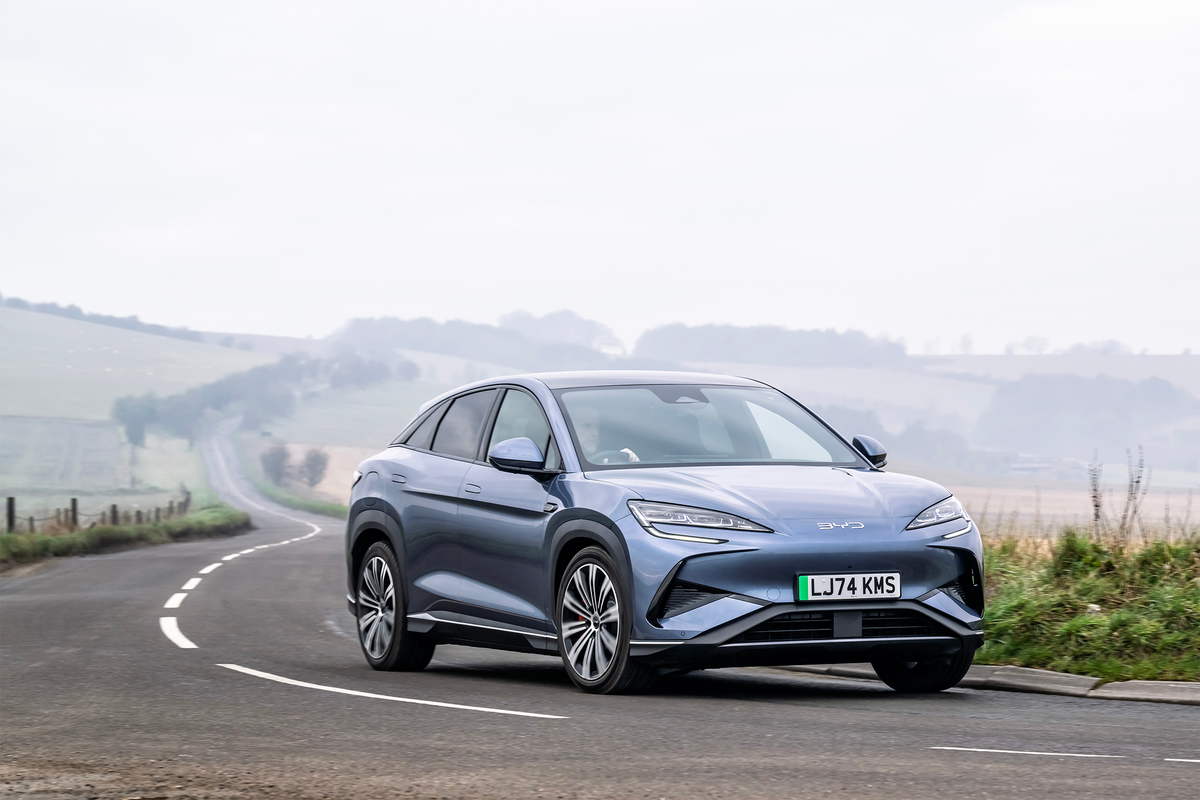The automotive landscape is rapidly evolving, with electric SUVs taking center stage, and BYD’s new Sealion 7 aims to carve out its niche. Positioned as a direct rival to global best-sellers like the Tesla Model Y, this new electric SUV boasts impressive specifications, particularly in performance. However, a deeper dive into its real-world value reveals a critical divergence between its powerful acceleration and what many consumers truly prioritize: range and competitive pricing in the burgeoning electric vehicles market.
While BYD confidently showcases the Sealion 7’s rapid 4.5-second 0-62mph acceleration, a feature emblazoned proudly on its badge, this focus on raw car performance might be a miscalculation. For the average buyer, the allure of a blistering sprint time often pales in comparison to the practical advantages of extended driving range. Imagine trading a slightly slower acceleration for an extra 50 miles on a single charge; most discerning electric vehicle owners would likely choose the latter, challenging BYD’s assessment of buyer priorities in this competitive EV review.
Visually, the BYD Sealion 7 presents a compelling case for its premium aspirations. Its sleek, smart design, part of BYD’s Ocean Series with distinctive wave-inspired aesthetics, exudes a high-end feel. At 4,830mm long, it’s notably larger than a Tesla Model Y, offering a commanding presence. The interior reinforces this premium billing, with posh materials and a flowing design that underscores the vehicle’s sophisticated automotive tech. Build quality is undeniably impressive, setting a high standard for contemporary electric SUVs.
Despite its aesthetic and build merits, the most significant obstacles for the BYD Sealion 7 lie in its market positioning against key rivals. Alarmingly, it is more expensive than not only the Tesla Model Y but also direct competitors like the Xpeng G6 and Changan Deepal S07. Compounding this, its maximum range falls short of these very rivals, presenting a bold, perhaps overly ambitious, move by BYD in a segment where value and efficiency are paramount.
Underpinning the Sealion 7’s powertrain are BYD’s acclaimed blade battery technology and the advanced e-Platform 3.0. Two primary battery capacities are available: an 82.5kWh pack for the Comfort and Design trims, and a larger 91.3kWh unit for the top-tier Excellence model. These configurations deliver varying ranges, with the two-wheel-drive Comfort achieving 300 miles, the four-wheel-drive Design at 283 miles, and the all-wheel-drive Excellence model offering a claimed 312 miles. While respectable, these figures contribute to the ongoing discussion in this EV review regarding its competitiveness.
However, the driving experience of this electric SUV reveals a somewhat inconsistent ride. The Sealion 7 exhibits an unusual blend of being slightly wallowy through bends while simultaneously feeling firm and occasionally bouncy over undulating surfaces. Though not uncomfortably harsh, its suspension readily communicates the road’s imperfections, a characteristic that might detract from the premium experience BYD aims to deliver. This nuanced ride quality is an important consideration for potential buyers weighing comfort against performance.
In terms of advanced automotive tech and safety, the Sealion 7 integrates several noteworthy features. Its 15.6-inch touchscreen is a central hub, offering intuitive controls like three-finger swipes for climate adjustments. A customizable 10-inch digital driver display and an excellent head-up display (in Excellence models) enhance the driving interface. Crucially, BYD’s blade battery is integral to the car’s body, offering significant safety advantages in frontal impacts by minimizing cabin intrusion, highlighting a thoughtful approach to occupant protection in this electric vehicle.
The financial aspect remains a significant hurdle for the BYD Sealion 7. Starting at £46,990, the entry-level model is £2,000 more than a comparable Tesla Model Y and a substantial £7,000 more than an Xpeng G6 or Changan Deepal S07. This price disparity is further exacerbated when considering range; for instance, the top-spec Sealion 7 Excellence at £58,990 offers 312 miles, while a Tesla Model Y Long Range RWD at £51,990 delivers 364 miles. Despite competitive finance offers and a six-year warranty, this value proposition is challenging for an electric SUV aiming to capture market share.
Ultimately, the BYD Sealion 7 stands as a testament to BYD’s ambition in the electric vehicles market, showcasing impressive build quality and innovative automotive tech. Yet, in this comprehensive EV review, it becomes clear that its strategic pricing and current range figures place it at a disadvantage against established rivals. While performance is present, the critical balance between cost, range, and ride comfort suggests that BYD’s latest electric SUV faces an uphill battle to become a dominant force in the fiercely contested premium EV segment.






Leave a Reply